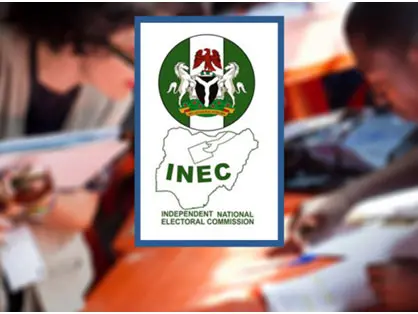Only the most politically naïve, or those who are not familiar with the political realities of Edo State would be surprised at the outcome of the just concluded governorship election in which the All Progressives Congress (APC) was declared winner by the Independent National Electoral Commission (INEC). The long and short of the matter is that the enemies of Governor Godwin Obaseki triumphed over him.
Video clips of APC celebrations at the home of Senator Adams Oshiomhole showed that it was basically a gathering of enemies that Governor Obaseki had made for himself. As a former APC governor who defected to the Peoples Democratic Party (PDP), Obaseki succeeded in alienating leaders of both parties. The end result was that his anointed candidate, who erroneously believed that he would win by a landside, fell victim to inherited opposition and animosity from both within the PDP and opposition parties.
Thankfully, the voting itself was commendably peaceful. Kudos must be given to the various security agencies that flooded the state and managed to maintain the peace. There was no reported loss of life or massive damage to public property. While security agencies must be commended, there is also cause for concern because Edo is a relatively small state not known for widespread political violence, yet it took some 36,000 or more security personnel to ensure law and order during voting. This implies that over one million security agents would be required to totally secure the thirty-six states and Federal Capital Territory in a general election!
Leaving aside INEC’s now routine lapses in logistics and timing which have now become an integral part of their election processes, the most disappointing aspect of the election was the live televised collation process. Despite all the billions INEC spends on elections it appears as if they do not consider the optics of televised announcement of results to be important. Their late start forced INEC to extend the voting time in some areas and was partly responsible for the delay in results being uploaded. That said, there was absolutely no excuse for the results from the Oredo and Ikpoba Okha Local Government Areas to be the last to be received. Both local governments form part of the state capital and their collation centres are less than five minutes drive from the venue of final collation yet they kept the world waiting even after results from far away local governments had been received.
- Yahaya Bello’s appearance in court Wednesday will save him – Sources
- Obi rejects Akpata’s 22,763 votes, describes Edo election as ‘state capture’
Everything about the televised collation was unsatisfactory and poorly carried out. Despite the faces of main officials being obscured by a completely unnecessary plethora of media owned microphones, INEC’s event microphones malfunctioned making it impossible for viewers to hear what was being said; party agents were unrestrained in their language when challenging virtually every result announced; and official documents both sealed and unsealed were flying all over the place biros were being used for a purpose which nobody understood. In this era of electronic data displays and computations, INEC’s simple failure to display results on a big screen with running totals (as most TV stations were able to do) was inexcusable. Even worse, the repetitive calls for order, the repetitive instructions to returning officers, the repetitive statements that collation is not the place for objection to results, the accusations of criminality against some party agents, and the inordinate delays in moving from one stage to another showed INEC in a bad light.
In addition to this, when asked to explain the reason why so many votes were cancelled, INEC officers abdicated their responsibility for voter education. The Commission has severally altered voting processes and ballot paper design and it is their responsibility to continuously educate voters (many of whom are not literate) to understand is systems.

 Join Daily Trust WhatsApp Community For Quick Access To News and Happenings Around You.
Join Daily Trust WhatsApp Community For Quick Access To News and Happenings Around You.


